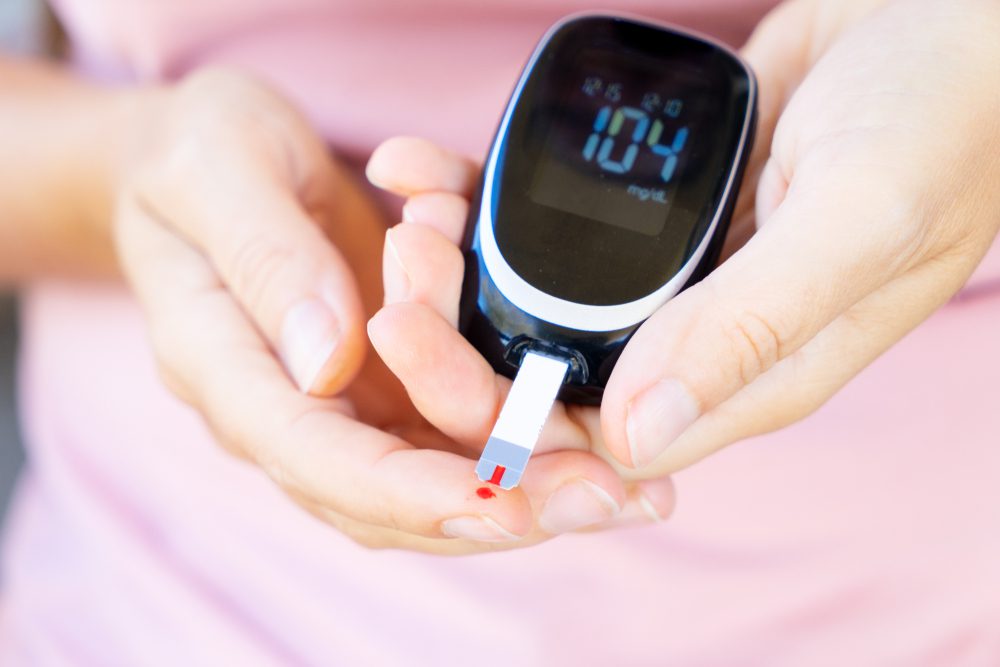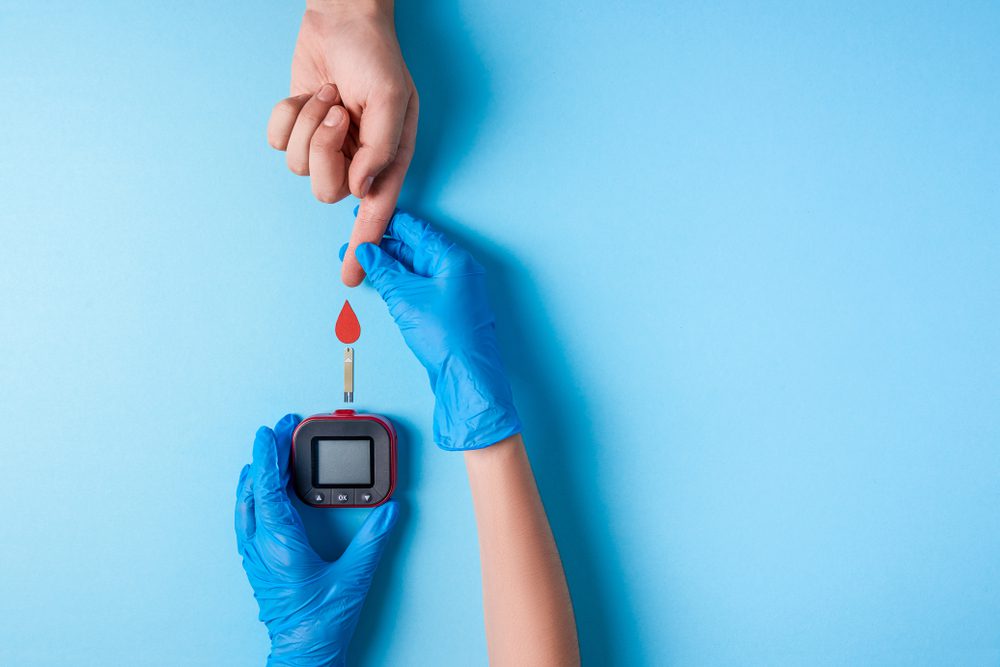As you well know, seniors have a higher risk of suffering from diabetes complications. The American Diabetes Association even reported that one in four people who are 65 and older have either Type 1 or Type 2 diabetes, compared to those who are below 65 years old.
On the other hand, diabetes management in elderly cases might represent some challenges, but the good news is that this is also manageable. But why are seniors more prone to diabetes?
Well, there are multiple factors to take into consideration, such as weight gain, slower metabolism, aging, and decreased physical activity. That’s why early management of diabetes is so important.

Diabetes and symptoms
What is diabetes, really? Diabetes usually affects how our bodies process food for energy. More than that, it slows down your body’s metabolism. If you suffer from diabetes, your body has a hard time breaking down the sugars in the foods you eat.
Too much sugar in your blood could affect your health and lifestyle, too. From how much you exercise to what you eat, here are all the diabetes symptoms that should send you warning signals:
- fatigue
- blurry vision
- feel thirsty
- lose weight without trying
- feels very hungry
- prone to infection
- urinate a lot, mostly at night.
- numbness or tingling in the hands or feet
- fatigue
- dry skin
- wounds that heal very slowly
More than that, high blood sugar in seniors might put them at risk of diabetes complications. That’s probably why you should take the needed measures and manage diabetes as best you can.
Eating a healthy diet
The right way to manage diabetes is with a healthy diet. As a senior, you can easily do this by eating enough fiber- and protein-rich foods like fish, eggs, and lean meat. Also, you must not forget about adding more fruit, vegetables, whole grains, and beans to your diet.
If you have to avoid sugar altogether, make sure you also cut out on fruit juice and fresh fruit. You can also drink green tea as an alternative. Avoid dairy, fried foods, fatty foods, and carbonated drinks, too. And last but not least, drink more water. The key to a healthy lifestyle is being hydrated at all times.
Taking part in exercise
For those of you who already suffer from diabetes, make sure you exercise a minimum of thirty minutes every day, five days a week. As the American Diabetes Association explained, regular exercise might help regulate not only your blood sugar levels but also your blood pressure.
It will also offer a healthier way to lose weight. Some diabetes exercises for seniors are also advisable, such as walking, practicing yoga, dancing, swimming, joining a water aerobics class, and active stretching.
Finding the right way to manage diabetes through dieting and exercising will get you very far.
Manage stress levels.
Your blood sugar levels might rise when you’re extremely stressed. Also, anxiety can make it much harder for you to manage diabetes. If you feel anxious, you don’t care about eating right, exercising, or even taking your medications.
That’s why it’s so important to take deep breaths, practice yoga, and find relaxation hobbies that will reduce stress.
Lower alcohol intake
Most alcoholic beverages are rich in sugar. Besides, some of these alcohols have as many calories as any other high-fat food out there. So if you’re looking for diabetes care tips, here’s what you need to know: the sooner you stop this toxic habit, the better.
Prevention is always better than cure. A deeply entrenched habit might be even more challenging to break, but you could do a couple of things about it. You can join a support group and discuss all the options with your physician.
Getting vaccinated
A weakened immune system will automatically make seniors more vulnerable to pneumonia or the flu. Those who suffer from diabetes are not only more prone to this kind of illness, but they also have to face lengthy recovery periods.
A very important step in diabetes management is getting regular vaccinations under your physician’s recommendation.

Monitoring the blood sugar levels
Seniors who suffer from hypoglycemia or hyperglycemia need to consider constant monitoring of their sugar levels. Your caregiver could help you with this task, or you could do it on your own.
It’s an important part of diabetes management, especially in the elderly population. And with your doctor’s help, you could easily learn how to check blood sugar levels and administer insulin.
Taking care of your feet every day
Make sure you check your feet on a daily basis for cuts, wounds, or any other signs of infection. Moreover, if you have trouble with your feet, you can use a mirror or even ask a family member to assist you.
Moreover, call your healthcare provider if you see a cut or even a red patch that looks slightly infected. Your doctor could even recommend a diabetic foot exam.
Always remember to clean your feet, wear hydrating lotion to prevent dryness, and wear comfortable shoes to avoid unpleasant blisters.
Making sure you don’t miss medication
Not taking your medication on time could cause your blood sugar levels to spike. You could use a pill organizer (if you don’t have one already, here’s our recommendation) so you won’t forget to take a dose of diabetes medication or even run out without notice.
As it usually happens, probably in the middle of the night. If you take other medications, you have to make sure they won’t interfere with your diabetes medication. A chart could also help you remember when to take your next ones.
Ensuring regular checkups
Regular medical checkups are quite essential, especially when it comes to elderly people, and that’s because they’re at higher risk of suffering from health issues.
Diabetes could also increase the chances of heart disease. Learn how to read your cholesterol, blood pressure, and alc, which is the average blood sugar over three months. You could even visit a foot doctor to inspect your feet for other conditions, like ulcers or even nerve damage.
Serious symptoms of diabetes in the elderly
Diabetes signs and symptoms could differ from one person to another. Some people have mild symptoms they don’t even notice, while others have very clear signs that something’s not right. Here are some of the most important signs to look out for:
Increased thirst and urination
Diabetes might cause a buildup of excess glucose in your blood, which will send your kidneys into overdrive. As the kidneys work to filter out your glucose, anything that’s in excess will be excreted into your urine, drawing fluids from your body along with it.
This could leave you feeling more thirsty than you’d usually be, which could make you drink more liquid and, hence, urinate more frequently.
Excessive fatigue
If you’re feeling more sluggish than usual, another relevant symptom in older adults is extreme tiredness. This is mainly because when your blood sugar levels are too high, it’s much harder for your body to convert glucose into energy.
Another reason why you’d feel fatigued is because you’re dehydrated, which can also be diabetes-related.
Wounds that heal slowly
For some seniors with diabetes, cuts and bruises seem to heal much slower than usual. Another important sign is the development of sores and skin infections that don’t heal too quickly.
This could also be due to impeded circulation caused by high blood glucose, which also hinders the body’s natural healing process. Women who suffer from diabetes could also experience more frequent bladder infections, as well as vaginal yeast infections.
If you found this article useful, then we also recommend reading: 8 Things to Eat and Drink Before and After You Had the Flu Shot













